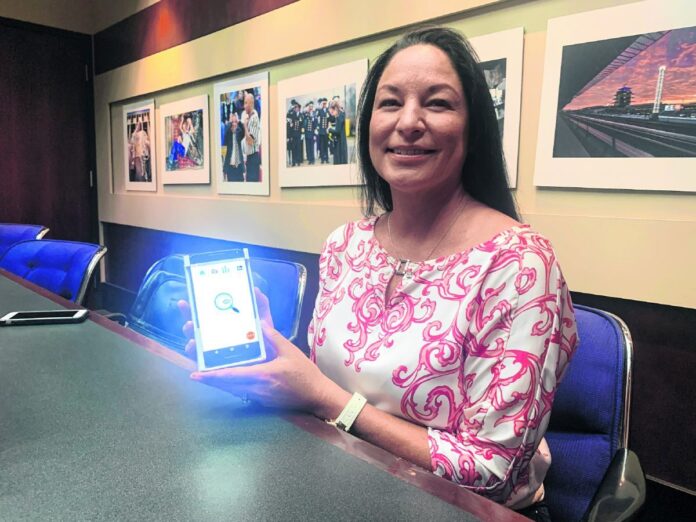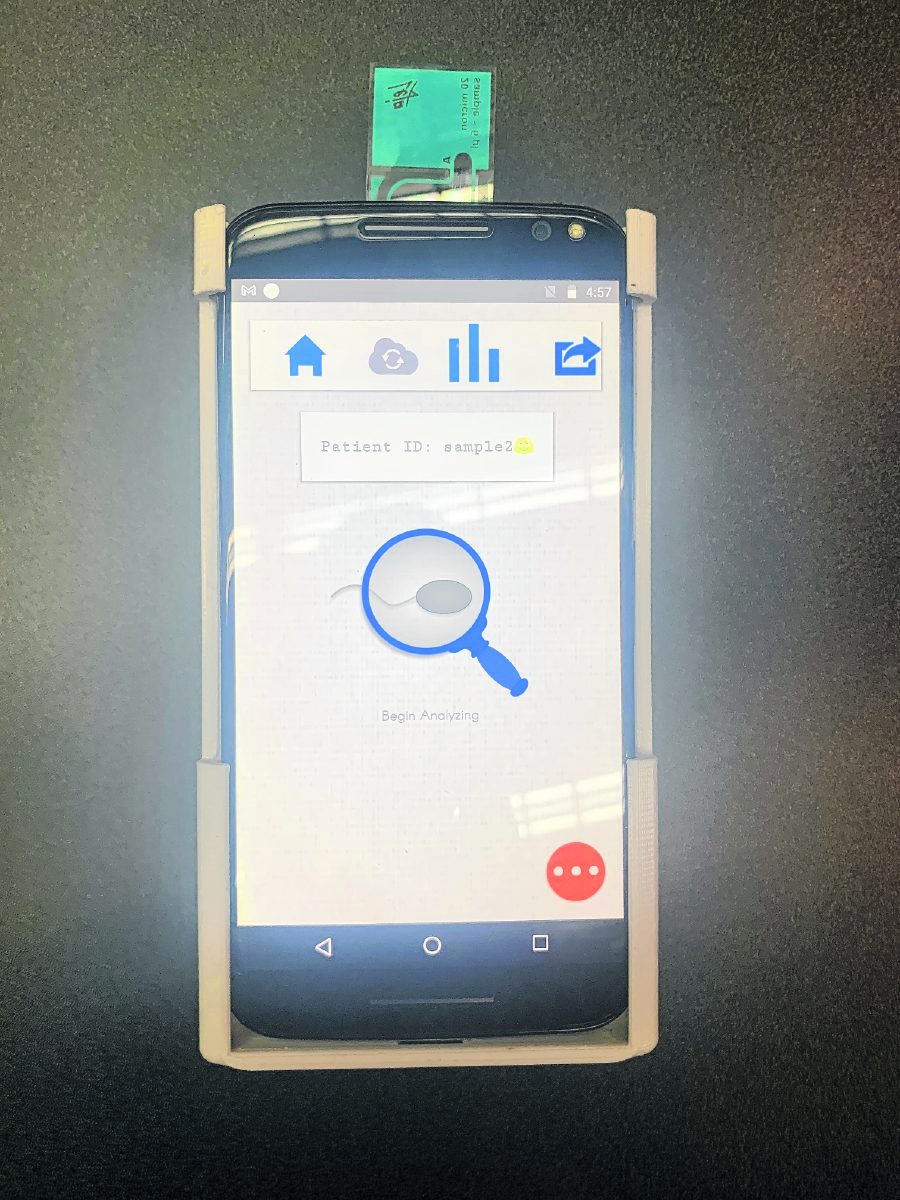
HANCOCK COUNTY — When livestock can’t reproduce, it means less meat in the food supply and less money in producers’ pockets.
The setback is often discovered downstream, after it’s already taken its toll. And while there are ways to get ahead of the problem, they’re usually expensive or require skilled labor.
But a Hancock County woman’s startup is looking to change all that with a mobile device that can analyze animals’ sperm and ovulation quality quickly, accurately and easily.
Verility Inc. and its product, Fertile-Eyez, helps livestock producers determine if an animal is ready to enter a breeding herd, said CEO and co-founder Liane Hart.
The company is starting with pigs and plans to prove its concept with other species as well.
The current prototype of the device uses a smartphone, but Verility intends to create its own mobile unit. When evaluating boars, a semen sample is placed into a small rectangular slide called a microfluidic device. That device is then slid into Fertile-Eyez, which uses a camera to read the sample and display its sperm cells on the screen. It also assesses the cells using artificial intelligence and proprietary algorithms.

Fertile-Eyez can quickly determine sperm cell concentration, how many of the cells are capable of motion, and how many are abnormal, Hart said. If a certain threshold of abnormality is reached, a livestock producer can avoid using it, as it’s likely not going to be fertile.
For sows, the device looks at saliva patterns, which demonstrate when ovulation is occurring. Hart said Verility is conducting a small study on that side of the technology, which will lead to a bigger one.
The device allows livestock producers to avoid having to rely on the skilled labor required to look at cells under a microscope.
“You don’t have to be a skilled lab tech,” Hart said. “In fact, Fertile-Eyez is like having a skilled lab technician and a digital microscope in the palm of your hand. You don’t have to be a Ph.D. or a scientist to use it.”
On average, at any given time, the swine industry experiences a non-conception rate of about 15%, Hart said.
“And it doesn’t sound like a lot, but with the number of animals, it actually equates to a lot of animals that aren’t entering into the food supply,” she continued. “So if we can just move that trigger just a little bit — even one, two, three, five percent — that means a lot more money back into the hands of the producer, and more meat into our food supply.”
Oftentimes producers don’t even check doses before insemination at sow farms due to not having the time, skilled labor or tools, Hart said.
“This gives them the ability to, within seconds, get a readout on a particular sample, and say, ‘This is good, let’s move forward,’ and negate that part of the equation,” she said of Fertile-Eyez. “Whereas before you had a question mark.”
Hart said the device is a fraction of the cost of similar products on the market, which can go for up to $20,000. Another aspect that sets it apart from competitors, she said, is its ability to determine cell morphology — the size, shape and makeup of a cell.
Hart worked at Elanco Animal Health for 17 years in a variety of areas, including sitting across from startups pitching the company.
“And I did not appreciate what they were going through at the time,” she said. “Now I totally appreciate that.”
Hart, who also breeds thoroughbred race horses, is driven by her love of animal health, investigative nature and competitive spirit.
“I’m always looking at the competition and making sure no one’s playing in my arena,” she said.
The technology behind Fertile-Eyez was first developed by Hadi Shafiee, an assistant professor at Brigham and Women’s Hospital, Harvard Medical School. He developed it to allow men to test sperm samples at home and avoid an in-clinic setting.
One of Verility’s co-founders had a connection to Brigham and Women’s Hospital, who in 2017 asked if the technology could have any applicability in animal health. The co-founder passed along the question to Hart and the other co-founders, to which they responded with a resounding yes.
Verility was formed, Shafiee jumped on board, and they’ve been working on Fertile-Eyez ever since. That work has included tests and a study with Purdue University, Hart’s alma mater. The company has a four-member team and an advisory board.
“I think there was a lot of learning throughout 2018 and 2019 of understanding how, as a startup, do we operate, who do we go talk to, and then how do we showcase it,” Hart said.
While the technology had proof of concept on the human side, much of the feedback from potential investors included a desire for more data in the swine space, Hart said. The company spent last year gathering that data before hitting the pavement again this spring.
“Five years ago, I would’ve never thought that I would consider myself as part of any startup, as an entrepreneur, never mind a CEO of a startup,” Hart said. “And how it has progressed to now, I’m very appreciative. And it’s been a great experience for me. I’m glad I did it.”



